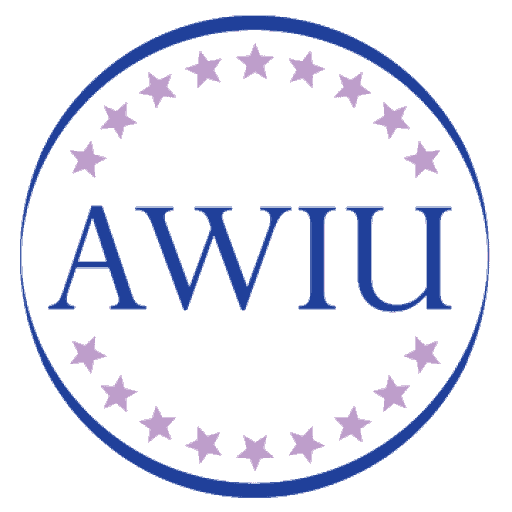2010 International Women of Courage Award Winners Bios
Shukria Asil
Afghanistan
Ms. Asil serves as one of four female members of the Baghlan Provincial Council. Her work advocates for increased accountability and responsiveness of the government to women’s needs. Her portfolio includes issues that have no other advocate, such as the rights of the mentally disabled, and her approach draws upon innovative tools and ideas, such as starting a networking group for professional women, or pushing to launch a driving school for women. She has promoted women in media, created links between remote communities and their provincial government, and worked to advance educational opportunities for young girls. Ms. Asil has chosen a public and dangerous role in her dedication to fighting injustice. In one particular case last year, Ms. Asil challenged the Ministry of Education after it published negative information in the media about three female teachers in Baghlan Province, resulting in the firing of those individuals. Ms. Asil successfully reversed their dismissal. In another instance, Ms. Asil intervened in a case in which a girl had been gang-raped and rejected by her family, managing to eventually reconcile and reunite the family, despite being directly discouraged by the provincial governor from doing so. Ms. Asil has forged ahead with her exceptional work despite threats of kidnapping and death. Even in the face of urging from the police and security forces to cease her work for her own safety, she continues to risk her life to work for what she believes in.
Colonel Shafiqa Quraishi
Afghanistan
Colonel Shafiqa Quraishi is the Director of Gender, Human, and Child Rights within the Ministry of the Interior. She began her career in the Afghan National Police. As Director of Gender, Human, and Child Rights, Colonel Shafiqa created and led a working group on Afghan National Gender Recruitment Strategy, with the goal of increasing the number of women working in the Ministry of the Interior to 5,000 and of improving the quality of the Ministry’s service to the women and of Afghanistan. Beyond recruiting women, she’s worked toward securing benefits and incentives to increase the number of women in the workforce, including childcare, healthcare, maternity care, security, and skills training. Colonel Shafiqa has succeeded in securing promotions for women working in the Afghan National Police who had been unfairly passed over for advancement for years. She works in close partnership with those responsible for training the police force, and works to raise public awareness of gender rights and the important role that women can hold as police officers.
Androula Henriques
Cyprus
Androula Henriques has fought for years against the buying and selling of women, pushing for long-term institutional change by lobbying government officials at the highest levels to take action against trafficking and to increase protection for its victims. She has created her own anti-trafficking network, made up of people in the media, NGOs, the diplomatic corps, and others, who also raise money for trafficking victims and rescue women from the hands of traffickers. Ms. Henriques’ coalition organized a conference in Cyprus in November 2008 that brought together the groups STOP International, L’Association Contre L’Exploitation et L’Esclavage Sexuel (“Association Against Exploitation and Sexual Slavery”), Friends of Humanity, and the Cyprus Anti-Trafficking Movement. It attracted speakers from the United States and the EU, as well as representatives of the National Police, the House of Representatives, the Attorney General’s Office, the Turkish-Cypriot community, several NGOs, and many journalists. Beyond advocating for institutional change, Ms. Henriques has generously used her personal resources to help trafficked women who choose to testify against their traffickers. She has opened the doors of her own home to women preparing to testify in court against the cabaret owners who reportedly held them captive as sex slaves. Ms. Henriques’ work to stop trafficking in Cyprus builds on her many years of experience advocating for human rights in other spheres and in other nations. Over the decades, Ms. Henriques, an educational psychologist by training, has helped fight global illiteracy, helped build schools in Guatemala, sheltered refugees fleeing the Pinochet regime in Chile and taken in refugees fleeing to Switzerland to escape violence in Greece during a military coup. Her work in Cyprus, where powerful groups have financial interest in maintaining the status quo on trafficking, has required tremendous bravery. When asked why she is so passionate about helping trafficked women in Cyprus, Ms. Henriques simply responds that, all her life, she has “sympathized with the underdogs.” The most terrible type of exploitation, she says, “is sexual exploitation, because it kills the soul.”
Sonia Pierre
Dominican Republic
Sonia Pierre became an activist at the age of 13, when she was arrested for being the spokesperson of a group of Haitian sugar-cane cutters in her migrant labor village who were protesting for better wages and living conditions. Since that time, she has dedicated her life to fighting anti-Haitian discrimination in the Dominican Republic as well as the broader issue of statelessness. Ms. Pierre is the founder and leader of MUDHA (Movement of Dominican-Haitian Women). The organization works to address the problems that Haitians and their children born in the Dominican Republic face, and tries to reform the problems in documenting people in both Haiti and the Dominican Republic that give rise to a class of people unable to reap the benefits and protections of nationality and citizenship. Ms. Pierre has used a campaign of public education and legal action to reform the Dominican Republic’s birth registration system and to build awareness of how statelessness deprives people of access to crucial human rights such as healthcare, education, and safe housing and working conditions. MUDHA has built homes in migrant labor areas, partnered with other individuals and organizations to ensure migrant workers have access to food and medicine, and provided services to address issues of adolescent pregnancy and the prevention of sexually-transmitted diseases, including HIV/AIDS. The organization works with undocumented laborers to ensure their rights are upheld and that they have access to social security, pensions, and severance pay. Ms. Pierre and her organization have raised the human rights concerns of Dominicans of Haitian descent in Washington and at the Inter-American Court of Human Rights, which Ms. Pierre successfully petitioned to have address the Dominican Republic’s discriminatory practices regarding birth registration. Her work has attracted periodic criticism from government officials and business leaders, and led to death threats. Despite the hostility, MUDHA has actively maintained channels of communication with Government agencies – a conduit that has become ever more important since the devastating January earthquake in Haiti.
Shadi Sadr
Iran
Ms. Sadr is a lawyer, journalist, and expert on women’s legal rights and has written extensively about the status of women in Iran. Until it was closed down by the Iranian government, she was the director of Raahi, a legal advice center for women. She founded Zanan-e Iran (Women of Iran), the first website dedicated to the work of Iranian women’s rights activists. She has represented activists and journalists, including several women sentenced to execution, whose convictions were subsequently overturned. Sadr is also involved in Women’s Field, a group of women’s rights activists who have launched several campaigns, including the “Stop Stoning Forever” Campaign. Ms. Sadr was among 33 women arrested in March 2007 for gathering outside a Tehran courtroom to peacefully protest the trial of five Iranian women who were accused of “propaganda against the system” and similar charges. She was held in prison for over two weeks before being released on bail. In the midst of the post-election unrest, Sadr was arrested by plainclothes militiamen on July 17, 2009, as she walked to Friday prayers. She was released, after international outcry, 11 days later, and fled to Germany, where she has remained a staunch activist for women’s legal rights.
Ann Njogu
Kenya
In 2008, Ms. Njogu was co-convener of the Civil Society Congress, which worked with other civil society organizations to avert total political collapse in the aftermath of the violence that tore Kenyan society apart after the December 2007 elections. Her organization, the Centre for Rights Education and Awareness (CREAW), documented sexual and gender based violence during the post election period, providing essential data for national and international investigations of possible criminal conduct by Kenyan leaders. Ms. Njogu was also instrumental in passage of Kenya’s Sexual Offences Act, as a co-drafter and lobbyist. Ms. Njogu has been a leader on Constitutional reform, which is crucial to Kenya’s future. She was the Co-Chair of the Multi-Sectoral Committee on Constitutional Reform, the Co-Chair of the Joint Dialogue Forum on Constitutional Reform and a delegate to the Bomas National Conference on Constitutional Reforms. Using the influence of her organization, CREAW, she has kept pressure on lawmakers for Constitutional reforms, and ensured that the reform process is representative and not skewed to benefit the existing power structure. These activities have come with great personal sacrifice. In 2007, Ms Njogu was physically assaulted and arrested by state security for demanding that Members of Parliament review their hefty salaries in light of the generally poor state of the country. With the other arrestees, she filed a Constitutional reference now popularly known as “Ann Njogu and others versus the State,” which was successfully adjudicated and now limits the time a Kenyan citizen can be held in custody to 24 hours. Hundreds of Kenyans have since used this landmark case to secure their release when police have arbitrarily arrested them and held them against their Constitutional guarantees. In 2008, with six others, Ms. Njogu was arrested, beaten and sexually molested by police when the group raised the issue of possible corruption in the sale of the Grand Regency Hotel. The matter is still pending in court, but it is just another example of her dedication to exposing corruption and fighting for reforms in Kenya.
Dr. Lee Ae-ran
Republic of Korea
Dr. Lee Ae-ran’s experience with tyranny began at age 11, when she and her family were designated “bad elements” by the North Korean government and sent to a labor camp following her Christian grandparents’ defection to South Korea. Dr. Lee spent eight years as prisoner, enduring abuse, horrific living conditions, and starvation as punishment for her grandparents’ “crime.” Upon her release, she graduated from college and worked at a government science and technology committee. In 1997, after a family relative in the United States published a memoir implicating her father in anti-regime activities, Dr. Lee fled to South Korea rather than be imprisoned again. She was able to take her 4-month old infant son with her, but was forced to leave her husband and other family members behind. Dr. Lee is the first North Korean defector to run for the Republic of Korea’s National Assembly, and the first female defector to earn a doctoral degree. To help others in the refugee community reach the levels of achievement that she’s earned, she’s spearheaded a variety of initiatives. In 2005, she founded the Global Leadership Scholarship Program, which has provided more than a thousand North Korean students with scholarships to study English – a skill critical to success in South Korean colleges and universities. In January 2009, she founded the Hana Defector Women’s Organization, an NGO with more than 200 members that provides North Korean women in the Republic of Korea with job training, child care, educational support, and human rights training. This year, Dr. Lee also opened the first North Korea Traditional Culinary and Culture Institute to provide North Korean women with practical entrepreneurial and culinary arts skills.
Jansila Majeed
Sri Lanka
Ms. Majeed is the Managing Trustee of Community Trust Fund in Puttalam province. The Trust oversees a number of programs on minority and women’s issues, including women’s rights, peace building, relief work, working with young people, and mine-risk education in the North and East. Ms. Majeed’s own particular focus is on uniting the Muslim and Tamil communities in her province. Having lived as an internally displaced person (IDP) for almost 20 years, Ms. Majeed has become an energetic activist for services for displaced Muslim and Tamil civilians, focusing particularly on grassroots programs on life skills, health, and women’s empowerment. Her activism began in 1992 with a working group of five people. She overcame both the general neglect of the problem of IDPs in the Muslim minority as well as her own community’s strictures against women activists to build a broad-based organization that works on minority and women’s issues in a highly sensitive and politicized environment.
Sister Marie Claude Naddaf
Syria
When Marie Claude Naddaf assumed the role of Mother Superior at the Good Shepherd Convent in Damascus in 1994, Syria did not offer social services for women suffering domestic violence, homelessness, or trafficking. Women trafficked into prostitution were imprisoned for months on end, held in jail with criminals until they could be deported. Sister Marie Claude set out to create a range of services for women through her Damascus Convent, and, in so doing, gradually created a partnership with the Syrian government on tackling violence against women. In 1996, Sister Marie Claude and the convent opened Syria’s first facility, the “Oasis Shelter,” for victims of trafficking and domestic violence. In the years since it opened, the success of the shelter inspired the launch of another facility – with full government cooperation – specifically for survivors of domestic violence, and a third specifically for those affected by trafficking. Sister Marie Claude launched Syria’s first women’s telephone hotline, which is attached to a new emergency shelter where women can get counseling, legal advice, and temporary shelter 24 hours a day. She won the right to have women in police custody released to a shelter if it was determined that the women were victims of trafficking. In 2009, this agreement resulted in more than 20 South Asian women trafficked into Syria for domestic work being released into the custody of a shelter – a visible symbol of the government’s transformation from thinking of trafficking survivors as criminals in need of punishment to victims in need of services. Sister Marie Claude has also pressed for better treatment of female prisoners. She established a special nursery at the prison in Damascus, and began a vocational education program to eliminate illiteracy and provide training for skills that will prepare the women for successful reintegration and better futures upon their release. Along the way, Sister Marie Claude also trained a dozens of committed nuns and activists in shelter administration, outreach, education programming, and more.
Jestina Mukoko
Zimbabwe
Ms. Mukoko is the Executive Director of the Zimbabwe Peace Project (ZPP), an NGO that monitors human rights abuses throughout the country. ZPP’s reports provide the international community with accurate assessments of human rights abuses, including violence against women and politically-biased distribution of food, and were particularly crucial during the violent 2008 election period. Ms. Mukoko is a long-time leader in the human rights and activist communities in Zimbabwe, and, as a broadcaster for the Zimbabwe Broadcasting Corporation, a pioneering role model. On December 3, 2008, Ms. Mukoko was abducted from her home by state security agents. She was beaten, tortured, forced to confess to an alleged plot to mount a terrorist incursion from neighboring Botswana, and subsequently imprisoned. A court granted her bail on March 2, 2009. After Ms. Mukoko appealed her arrest through the courts, the Zimbabwean Supreme Court finally ruled on September 28 that state security forces had violated her human rights to such an extent as to warrant a permanent stay of prosecution in the case against her. A concurrent civil suit is still pending. In the election-related violence that blanketed Zimbabwe in mid-2008, women often suffered particularly harsh abuse at the hands of security agents and ZANU-PF youths. Ms. Mukoko’s abduction and subsequent court case brought the subject of politically-motivated violence – particularly violence against women – and human rights abuses home to all Zimbabweans. Across the country, people in villages discussed “what happened to Jestina.” In a country in which regime-sponsored violence and intimidation has often silenced opponents, Ms. Mukoko’s ongoing legal case is an important statement against violence and oppression. Her bravery in calling to account those responsible for her abduction and torture, as well as her insistence on continuing her role as head of ZPP, has only reinforced her position as a leading human rights defender in one of the most oppressive countries in the world.













